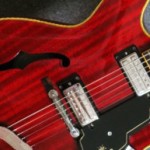I am all ears on any method of restoring a good neck angle without having to do a neck reset, especially if bridge beelying and the guitar bracing is ruled out. Not would I be all ears, but I am sure the entire guitar industry, as well as all the luthiers/guitar repair people on the planet would be overjoyed to hear such a methodology.
Anybody with the smallest lick of sense would have checked all of the bracing and bellying as a possibility before recommending or undertaking a neck reset. To assume otherwise is to belittle the many reputable luthiers/guitar repair people that are out there. There have been many people who have looked into the neck angle issue, and while there are many theories as to why the neck angle moves, none have come up with anything other than a neck reset as a solution, and this does include a number of very reputable and knowledgeable hand builders. while it is true that the reasons for the neck moving are open to debate, what isn't is that a neck reset is the only practical way of addressing the issue. Sorry, this is not a "craze", "fashion of the day", "WAG (Wild A__ed Guess" or anyting like that, it is the only practical method of addressing the problem.
As with anything that you buy, you are free to pay, or not pay for anything for any reason. But know that a guitar that has had a proper neck reset done DOES NOT lose value to anybody but yourself. It is in fact, accepted that neck resets will be required at some point in the lifespan of an acoustic guitar; it is inherent to the design and to how they function. Whether you or anybody else likes it or not, it is the nature of the beast, and if an acoustic guitar has not had a neck reset, it will, sooner or later.


